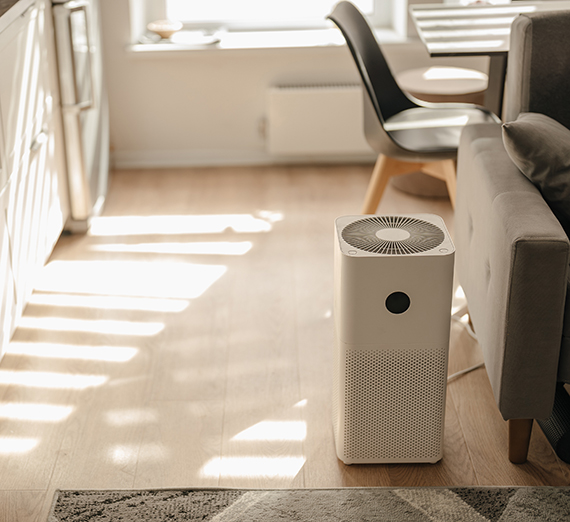Climate Institute Partners with Spokane, The Lands Council for Grant Aimed at Air Pollution

As spring arrives and the parks of the Inland Northwest shift from frosty fields to blooming play areas, the need for powerful landscaping equipment can fill the air of these otherwise soothing scenes with toxic emissions.
A new $675,000 grant from the Washington Department of Ecology awarded to Gonzaga University’s Institute for Climate, Water and the Environment in partnership with the City of Spokane and The Lands Council will help tackle the diesel-driven stink. The funding comes from the Washington state Climate Commitment Act, the state’s effort to drive down greenhouse gas emissions originally signed into law in 2021 and supported again at the ballot box in 2024.
Not only will the money help the City of Spokane replace 10 diesel parks maintenance units with zero-emission electric alternatives; it will also pay for the purchase and distribution of 400 portable air cleaners (PACs) to area low-income households and spark a community engagement program to educate and offer solutions for low-income communities dealing with the harms of poor air quality.
The grant, titled “Improving Air Quality for Overburdened Populations in Spokane and Spokane Valley,” is a natural extension of the work the Climate Institute has done for years, partnering with an array of community and governmental organizations to address issues ranging from wildfire smoke preparedness to surviving extreme heat events for our most vulnerable populations.
As part of the grant, The Lands Council will not only lead the distribution of 400 PACs, the organization will also conduct several community presentations and surveys in the months leading up to summer, helping residents gain a deeper understanding of the specific sources of air pollution affecting their neighborhoods.
“This funding empowers our community members most burdened by air pollution to take action in protecting their health,” said Lands Council Executive Director Amanda Parrish. “By distributing 400 in-home air filters, we’re addressing an urgent need for cleaner indoor air, especially during wildfire season, while ensuring that those who can’t afford full home HVAC upgrades still have access to vital air quality relief. This project is all about resilience and giving people the tools to safeguard their well-being.”
For many, the replacement of diesel-fueled landscaping equipment will be the most obvious improvement to their neighborhoods, and the new zero-emission equipment will focus on parks in communities considered “overburdened” by the state Department of Ecology, such as Hays Park in Northeast Spokane, where vulnerable populations face combined environmental harms.
“This funding allows the City of Spokane to replace 10 diesel parks maintenance machines with zero-emission alternatives,” says Garrett Jones, director of City of Spokane Parks & Recreation. “This grant will reduce emissions of five identified criteria air pollutants in overburdened Spokane communities.”
The Gonzaga Institute for Climate, Water and the Environment works to promote the flourishing of Inland Northwest communities in the face of a changing climate. Since 2021, the Institute has received 22 grants totaling more than $22 million to pursue that work.
